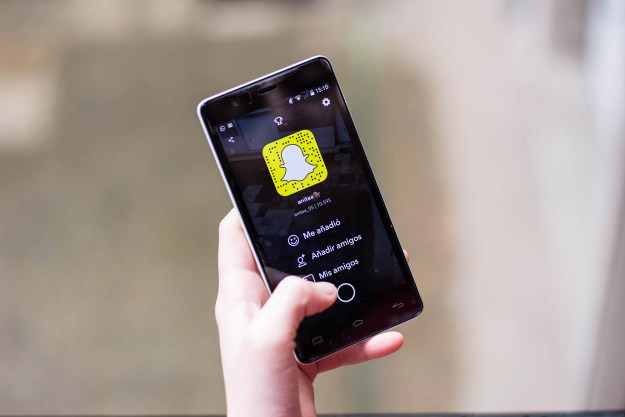Snap is removing from its Snapchat app a controversial speed filter that has been blamed for encouraging reckless driving.
Released eight years ago, the filter lets you take a photo or video overlaid with a readout of the speed at which you’re moving.
Safety campaigners have long complained that the filter encouraged people to drive dangerously, often so they could show off to friends by sharing content of their high-speed antics.
Crashes reportedly caused by drivers using the filter prompted some affected families to sue California-based Snap.
This week, the company confirmed to NPR that it has decided to remove it from the app because these days it is “barely used by Snapchatters.”
The company started taking down the filter this week, but said it could be several weeks before the removal process reaches all 500 million of its active monthly users.
Reckless driving
In Atlanta in 2016, an 18-year-old woman driving 107 mph slammed into an Uber driver, inflicting serious brain injuries on the driver. The woman’s accusers said that when the crash occurred she was trying to clock her speed using Snapchat’s speed filter.
Snap’s controversial speed filter also was linked to a car accident in Philadelphia in 2015 in which three woman died, and to a high-speed crash in Florida the following year in which five people lost their lives. In Wisconsin in 2017, three men died in a crash in which a 123-mph Snap was captured by one of the victims in the lead-up to the impact.
The tragic incidents prompted Snap to make some changes to the feature, including the addition of a message that says: “Please, DO NOT Snap and drive.” According to NPR, Snap also “quietly capped the top speed for which a post could be shared” at 35 mph.
The news outlet also pointed out that Snap is still engaged in legal battles linked to its speed filter, with a federal appeals court recently ruling that the family of those who died in the Wisconsin accident should have the ability to sue Snap for negligence. Just this week, Snap called for the case to be thrown out, claiming that the speed filter should not be blamed for the fatal crash.
Digital Trends has reached out to Snap for further comment on its decision to remove the speed filter, and we will update this article if we hear back.
Editors' Recommendations
- One of the most iconic iPhone accessories is back — and it’s great
- Snapchat hopes its new AI selfie feature will be a moneymaker
- Apple may kill one of its most important iPhones with iOS 17
- Have a Pixel Watch? You need to stop using one of its most important features
- No one is buying the RTX 4080 — will Nvidia finally slash its insane price?


